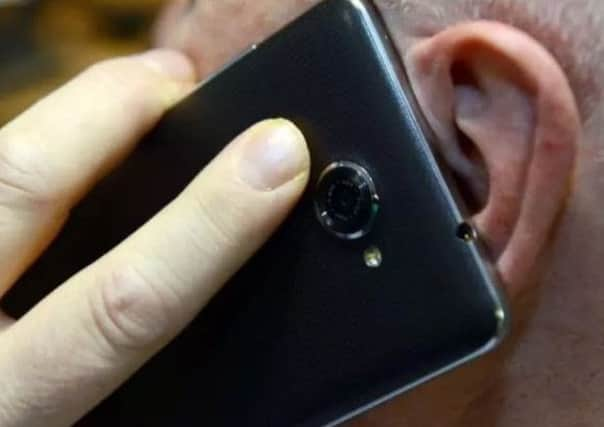'˜Can you hear me?': Warning over new phone scam


People have been urged to hang up if their phone rings and someone asks “Can you hear me?” as their answer to this simple question from an unknown caller could make them a victim of a scam.
It works by the scammer recording the person saying “yes” which is then edited to make it sound like they authorised a major purchase. It’s effectively a verbal contract, just like clicking ‘I agree’ on a computer.
Advertisement
Hide AdAdvertisement
Hide AdCalled a voice signature, it is used legitimately by companies to show the person agreed to some sort of a change, usually an upgrade in some sort of plan.
Phone security specialists CPR Call Blocker has seen this scam rise in frequency in the United States and say it’s just a matter of time before fraudsters start using it in the UK.
In one variation of the scam documented in the US, the criminals may pretend to be from a holiday or home security company and will later bill for products or services you never asked for. If you try to deny the charges, the scammers will play back your verbal confirmation “yes” and threaten to take legal action if you don’t pay.
In another variation, scammers may use the recording to authorise charges on a stolen credit card or with a utility company by tricking an automated system. The con artists may have already stolen other personal information through a data breach that would allow them to pass the security checks.
Advertisement
Hide AdKris Hicks of CPR Call Blocker is urging the public to simply put the phone down to unsolicited callers who pose that question.
Advertisement
Hide AdHe said:“Victims in the US have received a phone call from a familiar local area code and the other person on the other end of the line introduces themselves and their business.
“After the introduction, the person asks ‘Can you hear me?’ If the victim replies with ‘yes’, their response will be recorded for criminals to use.
“I know that people think it’s impolite to hang up, but it’s a good strategy. If you don’t recognise the number, don’t answer. And if you do pick up, and they instantly start asking ‘Can you hear me? Are you there?’ as if they are trying to get you to say ‘yes’ to something, don’t say anything and hang up. It’s fishy, don’t fall into the trap.
Advertisement
Hide Ad“In our experience of working across the US and UK, scams spread quickly across the pond so it is sensible for people to be on their guard as we have no doubt that fraudsters operating in the UK will soon start using these tactics.”
“One of the best ways to protect yourself is to register on the Telephone Preference Service and purchase a call blocker device which simply plugs into any landline and features a ‘Block Now’ button which ends an unwanted call and permanently blocks the number. They come pre-programmed with up to 2,000 known nuisance callers and have the ability to store up to an additional 1,500 numbers.”
Advertisement
Hide AdMr Hicks continued: “In the meantime, if you suspect you may have compromised your account, contact your bank or card provider as soon as possible. It also advisable to check your bank and card statements regularly for unauthorised charged as a matter of course.”